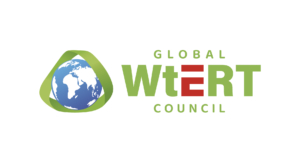M.S. Thesis: Volume-Based Waste Fee (VBWF): Effect on Recycling and Applicability to New York City
By John Abrashkin
Advisor: Prof. Nickolas J. Themelis
Department of Earth and Environmental Engineering
Fu Foundation School of Engineering & Applied Science
Columbia University
April 21, 2015
This study examines ways in which towns, cities, and even an entire country have adopted forms of VBWF across a range of population densities and collection practices. Such programs are then analyzed for applicability to the unique logistical, administrative and political environments in New York City. Based on average VBWF results in other cities, and excluding potential growth in organic waste diversion, New York City could reduce waste disposal volume by 10-13% and improve recycling diversion rates by 5-6%. Such a program would help the City meet its sustainability goals while reducing the growing costs associated with waste collection and landfilling. A licensed bag program in New York City enforced on the building level, which requires no change in waste collection infrastructure, could save New York City approximately $145 million annually in collection and disposal costs. Based on proposed bag prices, such a program could also generate on the order of $550 million of new revenue annually, providing the New York City Department of Sanitation with income equal to approximately 43% of its annual budget. Revenue from the sale of licensed bags could be offset by rebates on property taxes, which currently fund waste collection and disposal, to reduce political opposition to the new
fees.
This study proposes a pilot program involving the Department of Sanitation and Columbia University to test the feasibility of the concept with building managers and measure the change in waste and recycling rates among an estimated 4,00 residential units in the Morningside Heights area of Manhattan.
